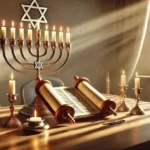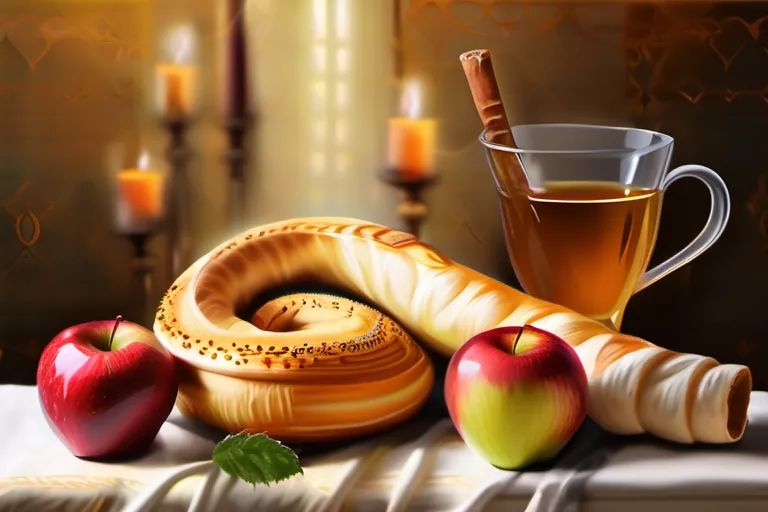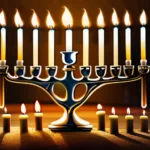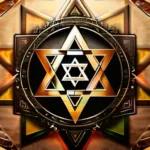Explore the history, customs, and spiritual meaning behind the Jewish New Year.
Rosh Hashanah, also known as the Jewish New Year, is one of the most significant holidays in Judaism. This article delves into the history, customs, and spiritual significance of this important holiday.
The Historical Significance of Rosh Hashanah
Imagine peeling back the layers of time to uncover the roots of Rosh Hashanah, one of the most significant holidays in Judaism. How did this holiday, celebrated on the first and second day of Tishrei, come into existence? What biblical events do we link it to, and how has its meaning evolved over millennia?
According to tradition, Rosh Hashanah is often associated with the Biblical event of the Binding of Isaac, where Abraham was tested by God. This narrative, found in the book of Genesis, serves as a metaphor for self-reflection and the journey towards spiritual growth. But this connection alone cannot explain its importance; it’s the history that unfolds like a tapestry, with each thread representing different periods of Jewish civilization.
During the Temple period, Rosh Hashanah was marked by sacrifices and prayers for forgiveness. The shofar, a ram’s horn, called the community to repentance, signaling the beginning of the ten days leading up to Yom Kippur. As the centuries passed, and the Temple in Jerusalem no longer stood, this holiday took on new forms, integrating themes of renewal and spiritual awakening.
In modern times, Rosh Hashanah has become a vibrant celebration of community and family. The concept of Yamim Noraim, or Days of Awe, envelops the entire period, inviting Jews to reflect on their actions and seek forgiveness. This holiday is not just about the past; it’s a gateway to new beginnings, a metaphorical turning point where every individual can start anew.
Rosh Hashanah has truly become a beacon of hope and renewal, transcending time and place. Its origins in biblical narratives connect us to our ancestors, while its evolution mirrors the dynamic nature of Jewish culture and tradition. As we celebrate this holiday, we carry forward a rich legacy that reminds us of our shared humanity and the importance of continuous spiritual growth.
Rosh Hashanah Customs and Symbolism
The air turns crisp, signaling the start of autumn and the approach of Rosh Hashanah, the Jewish New Year. As leaves change color, we are reminded to reflect on our lives, just as the shofar sounds, calling us to introspection. Have you ever wondered why the shofar plays such a central role in this holy day?
The shofar, made from a ram’s horn, serves as both a call and a warning. It is said to awaken us from our slumber of complacency, urging us to look inward and consider our actions. Just as the shofar’s sound echoes through the air, so too does its message reverberate in our hearts.
Dipping apples in honey, on the other hand, is a tradition that encapsulates the essence of hope and renewal. Imagine biting into a sweet apple, each bite a reminder to start anew with joy and optimism. This simple act symbolizes our desire for a bountiful year ahead, free from sorrow and filled with happiness.
Eating round challah bread during Rosh Hashanah is another profound practice. The challah, shaped in the form of a circle, represents the cyclical nature of life—both its endings and beginnings. It reminds us that no matter where we are on our journey, there is always hope for transformation and growth.
These customs, steeped in tradition yet deeply personal, serve as powerful metaphors for our spiritual journeys. They invite us to pause, reflect, and set intentions for the year ahead. As you partake in these rituals, consider what changes you might make or goals you may wish to achieve. The shofar, honey-dipped apples, and round challah bread are not merely symbolic gestures; they are gateways to a deeper understanding of ourselves and our place within the broader tapestry of life.
The Spiritual Meaning of Rosh Hashanah
Imagine stepping into the grand hall of Judgment, where every soul’s record is being scrutinized. Rosh Hashanah, often referred to as the ‘Day of Remembrance,’ is more than just a holiday; it’s an opportunity for profound introspection and renewal. How many times have you pondered about the significance of this sacred day in your personal journey?
During Rosh Hashanah, Jews believe that G-d opens the books of life to decide the fate of every person, plant, and animal for the coming year. It’s a powerful metaphor for understanding our roles in the universe and the impact we have on one another. How many of us truly consider this aspect of our faith? Does it not make you question your actions and intentions?
The theme of judgment is interwoven with the concept of repentance, or tshuvah. This idea is central to Rosh Hashanah, suggesting that even if one’s past has been less than perfect, there’s always room for change and improvement. It’s like finding a second chance at starting anew, much like turning the pages of a book. Have you ever thought about how often you can turn back time in your life?
The spiritual journey during Rosh Hashanah isn’t just about waiting for a judgment; it’s an active process of self-reflection and transformation. Self-examination is encouraged, leading to heartfelt apologies, forgiveness, and setting new goals for the year ahead. How many times have you prepared for such a profound moment in your life?
The spirit of Rosh Hashanah is also about community, where people gather to reaffirm their commitment to each other and to G-d. The communal aspect is crucial; it’s like coming together during a storm to find shelter. How often do we seek the strength in unity rather than standing alone?
As Rosh Hashanah approaches, may you embrace the significance of this day with open hearts and minds. It’s not just about remembering but about renewing—a chance to reset your path and journey forward with a sense of purpose and hope.
Rosh Hashanah Services and Prayers
In the heart of Rosh Hashanah, the sounds and rituals are as ancient as they are profound. One cannot help but wonder: what makes these services and prayers so unique? The Musaf service, for instance, is a highlight that goes beyond the regular morning prayers. It’s a moment when the community comes together to offer special offerings and recite a series of prayers that delve deep into themes of judgment and forgiveness.
The blowing of the shofar resonates through the air, its haunting notes echoing with the weight of history. This ritual serves as a reminder not just of the past but also of the future, urging us to reflect on our actions and seek redemption. Can we truly appreciate the shofar’s significance if we don’t understand its role in calling forth our inner selves for introspection? Each blast is a call to awaken from our complacency, to recognize that this moment, now, is precious and fleeting.
During these services, one finds themselves questioning their place not just within the community but also in the grander picture of existence. The prayers are a blend of personal reflection and communal responsibility, urging us to consider how we fit into the tapestry of human history. It’s as if each person stands before a mirror, seeing both their own faults and their potential for growth.
Yet, it’s not just about the individual. The shofar also serves to unite us in a shared moment of mindfulness, creating a sense of connection that transcends our differences. In this space, we find ourselves asking: how can we support each other in our journey towards a better future? These prayers and rituals are more than just religious observances; they are calls for solidarity and mutual respect.
As the Musaf service concludes, one is left with a profound sense of renewal. It’s as if the air around us has been cleansed, ready to embrace new beginnings. The significance of these prayers lies not only in their content but also in the communal experience they provide. They remind us that our journey is part of something greater, and that together, we can navigate the complexities of life with a deeper understanding and compassion.
The Role of Family and Community on Rosh Hashanah
The significance of Rosh Hashanah in Judaism extends far beyond just another calendar event; it’s a profound journey into the heart of family and community. Imagine, if you will, a grand symphony where every note plays a critical role in the composition of a harmonious whole – that’s what Rosh Hashanah represents.
In this chapter, we delve deep into how family and community play pivotal roles during Rosh Hashanah. These traditions are not just surface-level practices; they are the very fabric that strengthens Jewish bonds and shapes a sense of belonging. One such tradition is Tashlikh, where Jews symbolically cast away sins by throwing bread crumbs into flowing water. This act is a powerful metaphor for letting go of our past mistakes and renewing our commitment to better ourselves in the coming year.
Another cherished custom is sharing a festive meal with family and friends. This gathering symbolizes unity and love, much like how a puzzle piece finds its perfect fit into a larger picture. The apples dipped in honey are not just a tasty treat but also a reminder of the hope for a sweet new year ahead. Each bite is imbued with blessings and well-wishes, creating an atmosphere of joy and anticipation.
The role of family and community during Rosh Hashanah is more than just socializing; it’s about building bridges between past and future generations. Through these shared experiences, we not only reinforce our faith but also pass down the rich heritage of Judaism to the younger members of the community. It’s a time when the old traditions merge with new interpretations, ensuring that the spirit of Rosh Hashanah remains vibrant and relevant.
The Impact of Rosh Hashanah on Modern Jewish Life
Rosh Hashanah, often referred to as the Jewish New Year, has far-reaching implications for modern Jewish life. How does this ancient tradition continue to shape the identity and values of contemporary Jews? Is Rosh Hashanah just a historical remembrance, or does it hold relevance in today’s fast-paced world?
In many ways, Rosh Hashanah serves as a poignant reminder of our shared history and the enduring power of tradition. It invites us to reflect on our past actions, seek forgiveness, and strive for improvement. Can we truly make meaningful changes in our lives without looking back at where we’ve been?
The observance of Rosh Hashanah is not merely a religious duty but a profound journey of self-discovery and communal renewal. Through the sounding of the shofar, we are urged to awaken from complacency, much like how a sudden, loud noise can jar us out of a deep sleep. This ritual serves as a call to introspection, challenging us to confront our faults and seek redemption.
Moreover, Rosh Hashanah plays a crucial role in reinforcing the values of empathy and compassion. The mishloach manot (sending of gifts) tradition encourages giving generously to friends and family, fostering a sense of unity and care within communities. This act of kindness is more than just a gesture; it embodies the essence of what it means to be part of a supportive network that stands together during times of need.
In a world often driven by individualism and personal success, Rosh Hashanah reminds us of our interconnectedness as members of a global Jewish community. The simanim (symbols of good fortune) used in meals symbolize blessings for the upcoming year, uniting us through shared hopes and aspirations. These symbols are not mere decorations but serve as tangible reminders that we thrive best when we support one another.
As Jews navigate the complexities of modern life, Rosh Hashanah remains a cornerstone of our spiritual landscape. It challenges us to look inward, embrace our communal ties, and strive for personal growth. How can this ancient festival continue to inspire meaningful change in today’s fast-moving society?
The impact of Rosh Hashanah on modern Jewish life is profound and multifaceted. By reflecting on its historical significance and contemporary relevance, we find renewed purpose and strength as individuals and as a community. Rosh Hashanah not only celebrates the new year but also reaffirms our commitment to building a better world for ourselves and future generations.
Conclusion
 Understanding Rosh Hashanah enriches our appreciation for Judaism and its traditions. May this guide serve as a valuable resource for those seeking to learn more about this special occasion.
Understanding Rosh Hashanah enriches our appreciation for Judaism and its traditions. May this guide serve as a valuable resource for those seeking to learn more about this special occasion.











